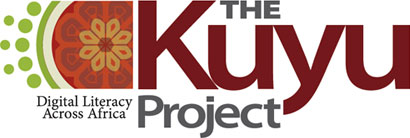Nine months later: The Kuyu Project and StorySpaces
This is the first of a series of two follow-ups on educational initiatives that began roughly a year ago. What do these projects have in store for Africa? What changes have been made to keep these efforts in motion?
The Kuyu Project is a digital literacy initiative aimed at teaching African High school students how to use technology. The ultimate goal is that these students will one day make a difference in their communities. Kuyu was launched in June 2010, and my write-up praised the simplicity of the site, the reliance on a wiki for discussion, and reasonable “long term goals of forming meaningful partnerships, using crowdsourcing for content, and interacting with mobile devices.” So, where is Kuyu today?
As expected, the project continues to expand and re-shape its focus. Not only does the Kuyu Project have an established wiki, but they also conduct digital literacy camps across Africa and are developing a mobile framework to facilitate discussion. The wiki, although still somewhat sparse, contains numerous social media “how-to” guides. Over 600 people are Facebook fans of the project and @TheKuyuProject is extremely active on Twitter. Recently, the directors provided an exciting update on what is expected for 2011. They write:
In reviewing it’s effectiveness, the team and I felt the wiki was lacking something. Our aim was to crowdsource experiential knowledge rather than just ‘How To’ manuals (many of these already exist across the Internet). In reflecting on this challenge we came up with an idea that could help solve this problem…and that’s how StorySpaces was born.
StorySpaces, still in its early stages, is a web and mobile application designed to crowdsource experience and ultimately translate global conversations into local actions. The key ideas here are that people learn better through stories rather than didactic methods. Simply put, people thrive on relevant content and are more receptive to stories than straight instruction. The further beauty of StorySpaces is that a user need not have top-notch writing ability. Anyone can submit a story in hopes of positively influencing others. Additionally, anyone can contribute to a story already in progress. After all, it is a core idea – not eloquence – that spurs the early stages of innovation.
There’s plenty to look forward to from the folks behind The Kuyu Project, so be sure to stay tuned as they explore online social interaction.













 Twitter
Twitter Facebook
Facebook Pinterest
Pinterest